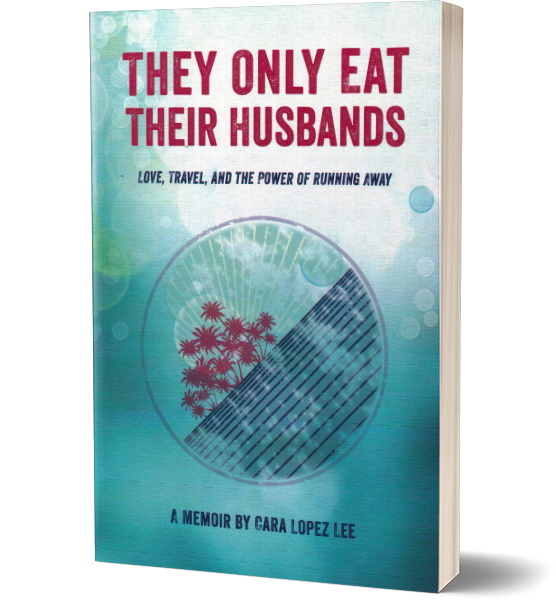 Please welcome author Susan Blumberg-Kason as she joins me on the blog book tour for her new memoir, Good Chinese Wife (Sourcebooks, July 29, 2014), which is already receiving rave reviews. Susan grew up in Chicago dreaming of the neon signs and double-decker buses of Hong Kong. When she moved there, she thought she met the man of her dreams, until her cross-cultural romance turned into a nightmare. Good Chinese Wife recounts her years in a Chinese family as a wife, daughter-in-law, and mother. Today she shares with us the importance of place in a cross-cultural marriage:
Please welcome author Susan Blumberg-Kason as she joins me on the blog book tour for her new memoir, Good Chinese Wife (Sourcebooks, July 29, 2014), which is already receiving rave reviews. Susan grew up in Chicago dreaming of the neon signs and double-decker buses of Hong Kong. When she moved there, she thought she met the man of her dreams, until her cross-cultural romance turned into a nightmare. Good Chinese Wife recounts her years in a Chinese family as a wife, daughter-in-law, and mother. Today she shares with us the importance of place in a cross-cultural marriage:
When Cross-Cultural Marriage Can’t Find a Home By Susan Blumberg-Kason
When I first met Baba, my former father-in-law, he told me a Chinese proverb—ai wu ji wu. It took me a few minutes to understand the English translation relayed by my then-husband, Cai. After discussing it between ourselves for a bit, I figured this saying was basically the Chinese version of “love me, love my dog.”
Baba knew I came from more abundant means. He had seen American homes on the television programs broadcast from Hollywood, dubbed into Mandarin. So he wanted me to understand that as long as Cai and I loved one another, nothing else would matter, including Mama and Baba’s bare-bones living conditions in central China.
But these words never helped my marriage, especially when we visited Mama and Baba in mainland China and later when we moved to San Francisco. Things were a little better during our three years in Hong Kong, the place where Cai and I met in graduate school. It was during that time in Hong Kong that I first read Betty Lee Sung’s book, Chinese American Intermarriage (Center for Migration Studies, 1990), which concluded that marriages like mine—in which the husband is from China and the wife from a western country—work best when the couple lives in a neutral country, i.e. a place that is new to both spouses.
According to Sung, couples who live in the West often face difficulty when the man is from China and the woman from the West. When I read her book the first time in Hong Kong, I thought I would be able to defy these odds when the time came for Cai and me to settle in San Francisco. When I searched the book out several years later, after we had moved to California, I worried for myself because I saw in my own marriage many of the problems outlined in the book.
Cai and I weren’t even in San Francisco for 24 hours before he started to doubt if he could live in the United States. Public transportation there paled in comparison to what he was used to in Hong Kong, a place he had only lived for three years. Stores in California weren’t open as late as in Hong Kong, nor were people out and about as they were in Hong Kong or in any city in mainland China. He found life in America quiet, sad, and meaningless. I figured he would change once he learned to drive and find a job, but that wasn’t to be. Cai had more friends in San Francisco than I did, but even that didn’t seem to matter. Fatherhood didn’t change him in that respect either.
Over the years as I’ve thought about what went wrong and what I could have done differently, I’ve scratched my head in wonder. We chose San Francisco because it is a cosmopolitan city with a large Asian—and Chinese—population. We were fortunate in that we had just enough money for him to take his time to find a job he enjoyed. But he never found a full-time job in the two years we lived in San Francisco together.
Would Cai have adjusted better if he had arrived in the U.S. as a student instead of an academic looking for work? Not necessarily. I’ve had friends whose Chinese husbands haven’t been treated well in U.S. academia, and they first came to America as students.
Or would it have been easier on us if I’d been the Chinese woman and he the Western man? Perhaps. I’ve known plenty of Chinese women who have married non-Chinese men and have enjoyed a happy life in the U.S.
It’s been a while since Cai and I divorced and I no longer think about what-ifs. But recently I found myself listening intently when I met with a friend my mother’s age who had married her Chinese husband almost 50 years ago and spent 40 of those years in Hong Kong. My friend told me that she advises cross-cultural couples to spend some time living in both home countries before they decide if they should get married.
But even before I read Sung’s book or learned of my friend’s wise advice, I knew that Cai and I would have a difficult time finding a place to live, one that would suit both of us. Even before Baba conveyed the Chinese proverb, Cai had told me that he wanted to move back to China after finishing graduate school in Hong Kong. I thought I could change that once he saw America. But in the end, he was right. He’s now living in China and I’m in the U.S.
***
These days, Susan is back in Chicago, where she lives with her husband, three children, and surly cat. Susan still loves China and often writes about it in her blog. She also blogs on such topics as world travel, book reviews, and raising multi-cultural children. You can order your copy of Good Chinese Wife at Amazon, Barnes and Noble, or IndieBound.





